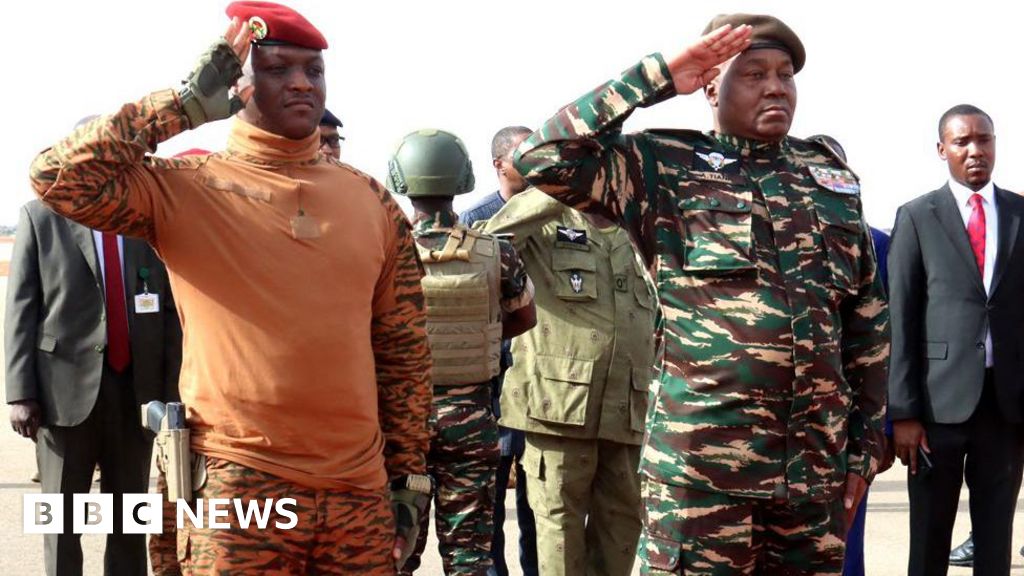The leaders of West Africa’s three junta will meet for the first time to cement an alliance forged over opposition from their neighbours.
Soldiers seized power in Mali, Burkina Faso and Niger in a series of coups between 2020 and 2023.
The three countries that now make up the Sahel coalition have been affected by jihadist violence, which was partly responsible for the military takeover.
In January, they both announced a plan to withdraw from the broader regional grouping Economic Community of West African States, which is holding its own summit on Sunday.
At a meeting in Niger’s capital Niamey on Saturday, junta leaders are expected to formalize the alliance, known by its French acronym AES.
Niger’s coup leader General Abdourahmane Tchiani chaired the talks, along with Captain Ibrahim Traoré of Burkina Faso and Assimi Goita of Mali The colonel also attended the meeting.
Security cooperation is high on the agenda, but the AES will also seek to build closer economic ties, including the goal of creating a common currency. This would be a rejection of the French-backed CFA franc, which is used by many countries in the region.
All three countries expelled French soldiers there on counter-jihadi missions and sought military aid from Russia.
Calls for greater sovereignty and rejection of former colonial powers have been a key part of the junta leader’s rhetoric.
The countries have also rejected ECOWAS calls for a swift return to civilian rule.
Captain Traore arrived in Niamey the day before the meeting and was given a warm welcome. Television footage showed cheering crowds waving Niger and Burkina Faso flags.
Among them was Sidi Mohammed, chairman of the National Youth Council.
“Today, as Africans, we are very proud to see this summit, an African summit, a summit where countries decide to concentrate their efforts and join forces to build alliances for their own development, without any foreign stakeholders, without any country Participation.
Colonel Goita arrived on Saturday.
The president of the wider West African bloc will have a chance to respond at a meeting of heads of state in Nigeria’s capital, Abuja, on Sunday.
They will also announce the activation of standby forces to deal with regional insecurity.
Over the past decade, the Sahel has increasingly become the focus of Islamic State militant activity, causing insecurity and instability.
Military governments in Niger, Burkina Faso and Mali have so far failed to quell the violence.

